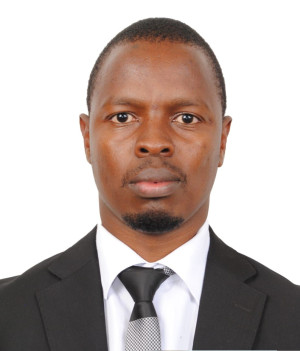We are #HealthSystemChangers
Communicating the value and impact of systems change learning can be difficult and hard to grasp. We know personally that what happens in this type of transformational learning can sometimes, and is often, intangible, immeasurable, and emergent, with new learnings and insights taking hold long after the programme finishes.
We are exploring ways of sharing and learning in the field of systems change, exploring storytelling in our monitoring and evaluation process and continuing to embody our foundation of #LearningIsChange.

As part of our partnership with J&J Foundation, we connected back in with alumni of two cohorts of the Basecamp for Health System Transformation programme, and invited reflections on their continued learning, and insights, since finishing their respective programmes 6 and 12 months prior. We explored the inner work to outer change - what shifts occur within practitioners who go through systems change learning? We probed the influence they had - has any change rippled into the collective? And finally, how might we test our assumption that one person’s deep learning is having an effect on the system.
The interrelated themes that emerged from our 6 conversations with 18 practitioners were:

Mindset shifts & working with new language
Mindset shifts, much like new vocabulary, signals a fundamental shift in how someone perceives themselves, and the world around them and are closely interconnected, and influence each other in different ways. While a mindset describes how we perceive the world, language is how we interpret it. Mindset and language shape everything from our worldview, to our cultural histories, to our perception, and in terms of systems change work, helps us understand how change happens. Both are historical and cultural and spiritual, it’s personal and collective, and it’s always evolving. Taking on vocabulary to describe new understandings of the world is crucial for communicating and addressing the challenges we face and as our understanding of the world evolves, so too must our language. These shifts help us articulate and convey new understandings of how things are , allowing us to navigate and address complex issues. It allows us to challenge existing paradigms, question established norms, and advocate for transformative change and therefore serves as a powerful tool in systems change work, helping us shape, communicate, and co-create a more just and regenerative world.
“The methodology in terms of systems mapping and the iceberg model has been very useful in my work, but not only that, the language has stuck - leverage, patterns, structures, interventions, mindsets, mental models… my vocabulary has changed and I’m using it to help others see the world in a different way. Quite interesting that a 6-month training can do that.”
Systems change learning supported mindset shifts during the programme and out in the field, from shifts within the self: “it seems obvious, but we are the system - that is now very present for me”, to shifts within the collective, “seeing the little things, vs holding the big picture, Basecamp taught me, and therefore my team, to work on changing what you can now, probing and experimenting with small interventions, and that big changes will come through small steps” - all the way up to the health system itself, “this programme taught me the importance of transcending our organisation mission to work higher at a systems level, to work toward the system being healthy itself, for which we can all contribute to.”
Practitioners also shared that they had adopted a new language, and that it was supporting not only themselves but their colleagues and collaborators. Alongside new capacity to facilitate spaces using language that supported a systems view amongst teams and projects, practitioners were able to use a “different vocabulary that tries to get others to see the world in a different way.”
Feeling ok in the complexity
Embracing complexity, as School contributor Dr. Jean Boulton teaches, is a mindset that embraces the non-linear, emergent, unpredictable and complex nature of the world - not ignored or seen as problematic. This mindset, and capacity, to feel confident in complex environments, is a way of being that reverberates from our inner worlds, shaping how we interact, collaborate and lead change in challenging situations
“This course has really helped me understand the complex situations we work in - the diagnostic part is what really continues to resonate with me, for example, working in Syria is one of the most complex multidimensional grounds possible.”
Some spoke of comfortably using frameworks and new ways of thinking to navigate complexity, “using concepts from the panarchy model to explain the political environment in Pakistan was incredibly helpful” to working with others, “defining the edges and boundary of the system you’re working in is very useful, and I continue to hold it in the front of my mind when working with people - this skill is so important for people within local health systems.” Understanding how to work with complexity is a deep, ongoing learning process.
Learning is change
At the School of System Change we exist to nurture a systemic, living paradigm, where learning is change. We believe that it is through learning processes of adapting to constantly evolving conditions that change happens - and that the change we are seeking in the world is an increased and ongoing collective capacity to learn in the face of complexity and uncertainty. We believe that learning is the essence of change.
“I am learning all the time, knowing that I’m never really done. I’m constantly trying to challenge myself, it’s a different kind of intellectual curiosity”
Practitioners continue to embrace learning as an essence of change 6 months and 12 months after completing the programme. This important shift from gaining knowledge or skills, a “destination” of sorts, to redefining learning as a constant state, continually responding to what’s changing and adapting to the needs of certain environments. Learning as change supports a process of developing, flourishing and evolving alongside a constantly changing environment. “I’m now learning in the open, and learning how to model that openness, which is hard, but I’m able to bring people in, and along, that journey”
Confidence in systems practice
Much like the world itself, systems change learning and practice is a non-linear, emergent and continual journey and at the School we believe there is no one way to do systems practice, therefore we introduce practitioners to a wide range of being, thinking and acting to support individuals and organisations adapt and flourish in complex environments. Building capacity within systems practice is core, alongside experience in frameworks, methodologies and approaches. For example, learning how to listen and listening into what is needed is a key capacity in systems change work, helping to expand boundaries, understand patterns and find wisdom in the no by seeking out minority perspectives. Practitioners shared a new ability to stay quiet, to listen to unspoken words, and to feel comfortable in finding not solutions, but more questions.
“I am more confident [in my practice], more out in the open and more collaborative, I create spaces for prototyping, experimenting and doing stuff that is safe to fail.”
"Different mental models in systems change have been incredibly useful. When mentoring clinical researchers I have been using tools like the iceberg model, and in my organisation I have been using three horizons framework. In fact I have used some of my thinking and diagramming from an exercise in Basecamp in a publication called ‘Cardiovascular Diseases in Pakistan, Imagining a Postpandemic, Postconflict future’.”
Conversations ranged from how practitioners continue to use frameworks and approaches - using the Multi-Level Perspective to think about the landscapes and transitions in the system, to Deep Democracy to uncover group dynamics and moving from the individual to the whole. A confidence in systems practice helps practitioners understand the nested nature of systems and working at different levels at the same time.
Thank you
Thank you to the practitioners below who joined us for these conversations! As the field of systems change evolves we are grateful to collectively explore these emergent themes and new paradigms of learning. If you have anything to share about this sense-making piece, please reach out to [email protected].
Ombretta Baggio, Miguel Castillo, Memory Chitambo-Samboko, Alana Cookman, Folasade Fadare, Anindita Ghosh, Aloise Gikunda, Nigar Izmayilova, Emilia Aragon de Leon, Keith Mangam, Lee McBride, Sila Monthe, Basilio Mwangi, Zainab Samad, Naja Skouw-Rasmussen, Oliver Standing, Lynda Toussaint.











